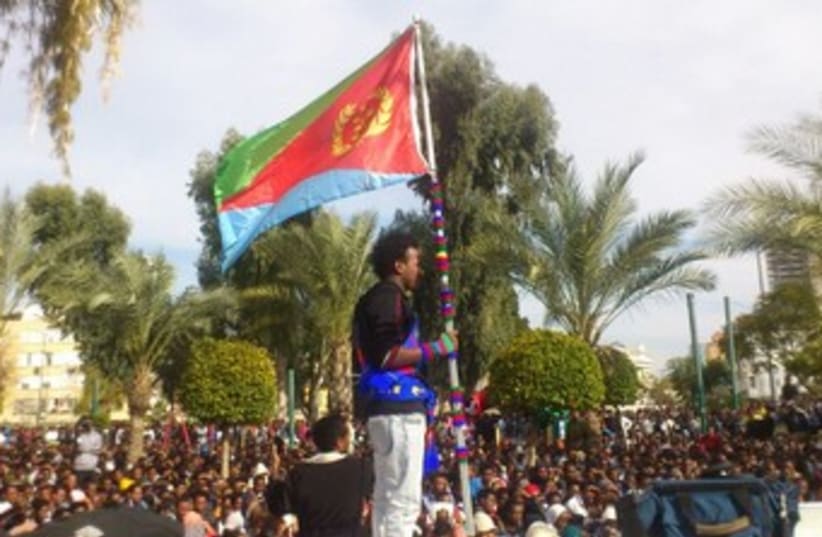“Just as we succeeded in completely blocking illegal infiltration of our borders, we are determined to remove those who managed to enter before we closed the border,” he said at a meeting of the Likud Beytenu faction.The prime minister clarified that he was not talking about refugees, who he said are treated according to international norms.“These are illegal work infiltrators, and we are determined to fully bring them to justice,” he said. Netanyahu said that in 2013, the government deported 2,600 illegal migrants, six times as many as in 2012, and that he plans to remove even more in 2014.A few dozen Eritrean migrants have relocated to Sweden in recent weeks following an agreement reached between Jerusalem and Stockholm, the Interior Ministry reported on Tuesday.The Interior Ministry said that the migrants left as part of the “ongoing process of willful deportation to Sweden.”They added that the move was also done in collaboration with the United Nations and that each Eritrean migrant received a payment of $3,500.According to ministry figures, a total of 2,612 migrants willfully left Israel in 2013, of these 1,955 were from Sudan and 461 from Eritrea. The ministry said that in 2012, the number was a total of 461.The Israel NGO Assaf, which assists African asylum seekers, said Tuesday that the resettlement of the 54 Eritrean women was arranged in recent months between them, the UNHCR in Israel, and governemnt represetntatives from Sweden who had visited Israel and decided on their own to help these women.
Asylum seekers: What would Gideon Sa'ar say about growing old in prison, not working, studying?
Protest leaders hold press conference in south Tel Aviv to present demands to the Israeli government, decide next steps of protest.
